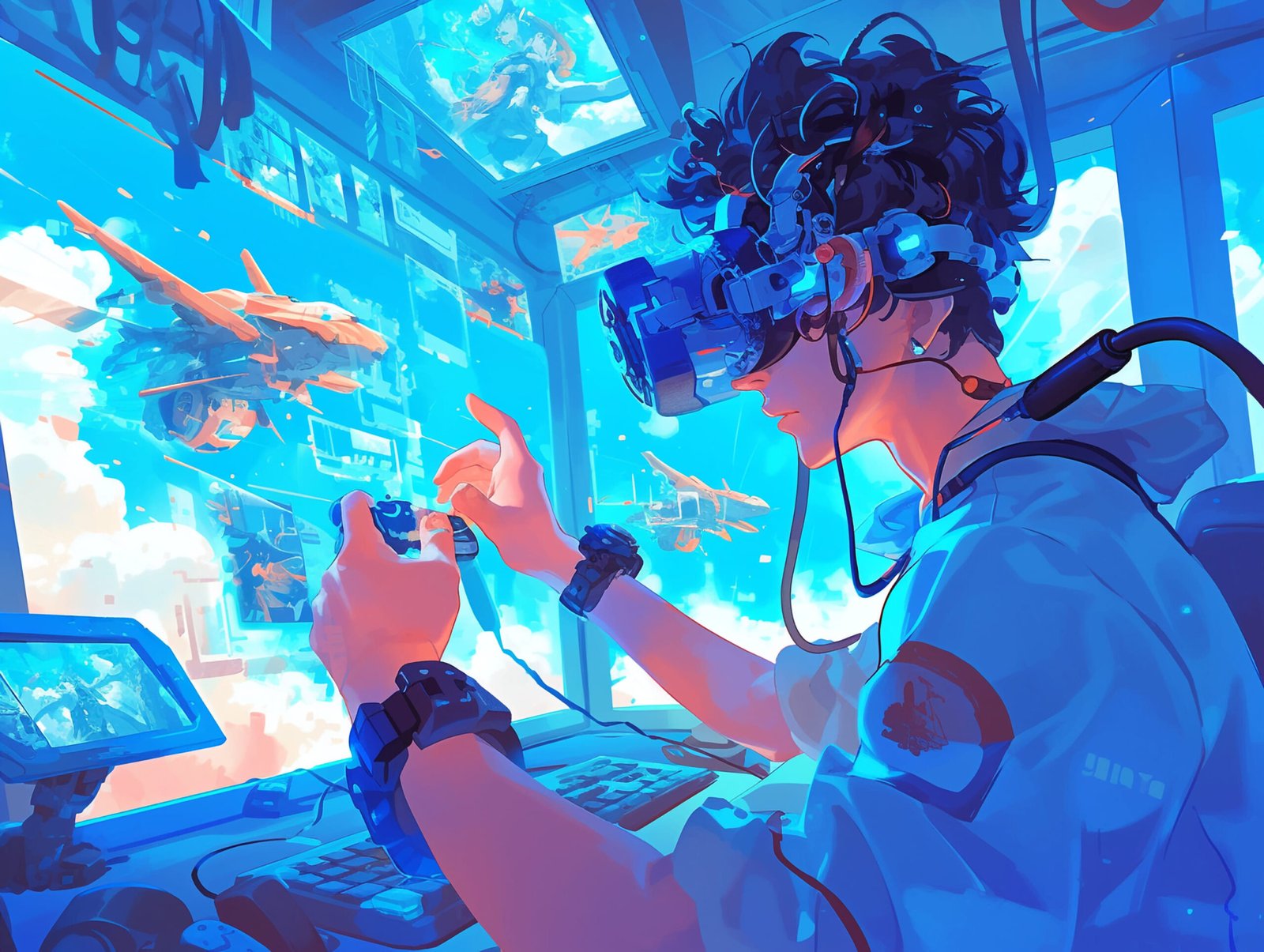Why Storytelling in Video Games Is Better Than in Movies
Contents
- 1 Why Storytelling in Video Games Is Better Than in Movies
- 1.1 1. Interactivity: Where Choice Meets Consequence
- 1.2 2. Immersion Through Gameplay: Being in the Moment
- 1.3 3. Time and Depth: Characters Who Grow With You
- 1.4 4. Worldbuilding Through Exploration
- 1.5
- 1.6 5. Empathy Through Role-Play
- 1.7 6. Shared Stories: Community and Collaboration
- 1.8 7. A Rapidly Evolving Medium
- 1.9 8. Films Still Shine—But Differently
- 1.10 Case Study: The Walking Dead
- 1.11 Player Voices, Developer Vision
- 1.12 Conclusion: The Future of Storytelling Is in Your Hands
- 1.13 Author
Imagine this: You’re not simply watching a hero face a pivotal choice—you are the hero. The decision to save a friend or complete your mission isn’t made by a screenwriter; it’s yours. This is the transformative power of storytelling in video games—and it’s why many now argue that games tell deeper, more personal stories than movies ever could.
For over a century, cinema has been the cornerstone of narrative art. Through a blend of visuals, music, performance, and direction, films have brought us unforgettable stories. But as moving as these experiences are, they share a fundamental limitation: the viewer remains passive.
Video games break that barrier. They invite you into the narrative—not as a spectator, but as an active participant. That difference rewrites the rules of storytelling.
In this blog, we’ll explore why video games are redefining how stories are told—and felt. From interactivity and emotional investment to character depth and community storytelling in video games, we’ll uncover what makes games uniquely powerful—and why they may be the future of narrative art.
1. Interactivity: Where Choice Meets Consequence
At the heart of video game storytelling lies interactivity. Unlike movies, which follow a linear script, games often present branching narratives shaped by player choice.
Take Mass Effect, where your decisions determine fates, relationships, and even the fate of entire species. Or Detroit: Become Human, where small interactions snowball into drastically different outcomes. These aren’t superficial changes—they’re narrative pivots that empower the player as co-author.
In games, your choices don’t just influence the story—they are the story.
This level of agency fosters a deeper emotional connection. Watching a tragedy unfold is moving. Causing it—accidentally or intentionally—hits entirely differently.
2. Immersion Through Gameplay: Being in the Moment
Video games seamlessly blend narrative and gameplay, placing you directly inside the experience.
In Red Dead Redemption 2, the story unfolds through exploration, mission choices, and intimate moments around campfires or on horseback. You’re not just told who Arthur Morgan is—you become him through your actions.
Similarly, The Last of Us delivers tension and tenderness in every encounter. Scavenging for resources and surviving hostile encounters isn’t a cutscene—it’s your reality as Joel or Ellie. The gameplay isn’t separate from the story—it is the story.
3. Time and Depth: Characters Who Grow With You
While films are constrained by time—typically two to three hours—games often span 20, 50, or even 100+ hours. This extended format allows for intricate character development and evolving relationships.
In Persona 5, months of in-game time deepen your bond with teammates, unveiling personal backstories and emotional arcs. In Firewatch, a slow-building relationship unfolds through radio dialogue, mirroring real human connection.
This kind of narrative pacing makes character growth feel natural and earned—something rarely possible within a film’s limited runtime.
4. Worldbuilding Through Exploration
Few mediums offer the sense of discovery that games provide. Open-world titles, in particular, excel at environmental storytelling in video games—narratives told not through exposition, but through the world itself.
In Elden Ring or Dark Souls, abandoned structures, cryptic item descriptions, and enemy placements all whisper fragments of a grander tale. Players don’t just learn the story—they uncover it.
Exploring these worlds feels like digital archaeology—every detail unearthed is a reward for curiosity.
Movies, with their fixed duration and linear flow, can’t replicate this freedom or sense of wonder.
5. Empathy Through Role-Play
One of gaming’s greatest strengths is the empathy it fosters by allowing players to inhabit another person’s experience.
In Undertale, your moral decisions define the story’s tone—each act of mercy or violence reverberates through the world. In Disco Elysium, you shape a deeply flawed detective’s personality through thoughts, memories, and dialogue.
Games don’t just ask you to understand a character’s struggle—they make you feel it from the inside out.
Gaming isn’t just a personal experience—it’s often a shared one. Whether through online play, streaming, or modding, players around the world co-create narratives.
Minecraft players construct vast cities with their own histories. In No Man’s Sky, explorers catalog and share their discoveries across entire galaxies. These aren’t pre-written plots—they’re organic, collaborative stories shaped by real people.
This communal aspect of storytelling is unique to games. Films may spark discussion, but games invite participation.
7. A Rapidly Evolving Medium
Technological advances have propelled video game storytelling into new territory. Realistic motion capture, sophisticated voice acting, and evolving AI are pushing narrative immersion to cinematic heights—and beyond.
Games like Cyberpunk 2077 and Horizon Forbidden West feature nuanced performances that rival film. Meanwhile, procedural storytelling is emerging, where AI dynamically adjusts narratives based on player behavior.
Games aren’t just catching up to movies—they’re charting entirely new frontiers.
8. Films Still Shine—But Differently
This isn’t to diminish cinema’s artistry. Movies deliver tightly edited, visually rich stories with emotional precision. Their curated experience can be profound—when well-crafted, a film can say more in 90 minutes than some games say in 90 hours.
But the key difference remains: movies are watched, games are lived. That distinction creates a depth of connection movies often can’t reach.
Case Study: The Walking Dead
Telltale’s The Walking Dead game and the popular TV show offer an illuminating comparison.
In the game, you are Lee. Your choices impact Clementine’s development, and the weight of your decisions builds toward an emotional climax that feels deeply personal.
The TV series, while compelling, keeps you at arm’s length. You witness tragedy—you don’t shape it.
In the game, Clementine’s fate isn’t just heartbreaking—it’s yours.
Player Voices, Developer Vision
Players often share stories of how games helped them through grief, taught them empathy, or built lifelong friendships. These aren’t just entertainment experiences—they’re life experiences.
Developers like Hideo Kojima, Neil Druckmann, and Cory Barlog see games as emotional canvases.
“We don’t just make games—we create experiences that people carry with them.”
— Neil Druckmann, Creative Director, Naughty Dog
Conclusion: The Future of Storytelling Is in Your Hands
Movies will always have a vital place in storytelling. But as audiences seek deeper engagement, video games offer something unparalleled: agency.
Games empower us to feel, not just observe—to make decisions, face consequences, and become someone else, if only for a while.
So whether you’re forging alliances in space, surviving in a post-apocalyptic world, or quietly walking through a forest with a radio companion—the next great story might not be one you watch.
It’ll be one you play.
Curious about the creators shaping this interactive revolution? Don’t miss our blog on the Top 10 Gaming YouTubers in India—see who’s leading the charge in bringing these stories to life, one playthrough at a time.


